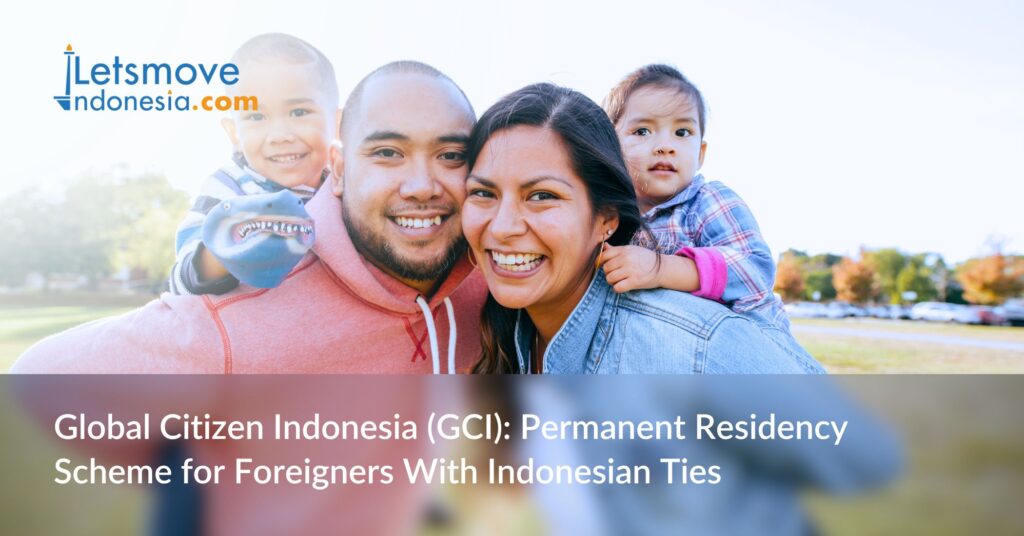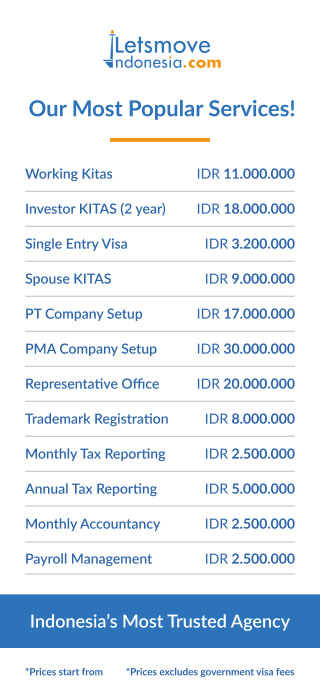This article has been verified by LMI Consultancy Visa Consultants and aligns with official information released through the Ministry’s portal at kemenimipas.go.id.
Defining chapter in its immigration reform, Indonesia Immigration introduces Global Citizen Indonesia (GCI), the first-ever pathway to permanent residency for eligible foreigners, particularly those with deep historical, familial, or cultural ties to the Indonesian ancestry.
For decades, foreign nationals with Indonesian lineage, such as former citizens, diaspora descendants, foreign spouses, and mixed-nationality children, faced layers of administrative hurdles, annual visa renewals, and legal uncertainty.
GCI is aimed to be the the first framework to replace that complexity with clarity.
Announced by Minister of Immigration and Corrections (Imipas) Agus Andrianto on 19 November 2025, GCI represents one of Indonesia’s most transformative policy shifts in the modern era.
It provides unrestricted, long-term residency without requiring applicants to renounce their existing citizenship.
Key Highlights
- Comparable to India’s Overseas Citizenship of India (OCI) in structure and global positioning.
- Permanent residency (unlimited stay) for foreigners with Indonesian lineage or strong family ties.
- Requires no citizenship renunciation and compatible with Indonesia’s single-citizenship policy.
- Applies to ex-WNI, their children, grandchildren, Indonesian spouses of foreign citizens, and mixed-parentage children.
Global Citizen Indonesia: A Permanent Residency Program Designed With Foreigners in Mind
For foreign nationals with deep personal ties to Indonesia, navigating long-term residency has often been an obstacle course. Annual sponsor requirements, complex renewals, and rigid citizenship laws have long created uncertainty for diaspora families and former Indonesian citizens.
The introduction of Global Citizen Indonesia (GCI) significantly changes that landscape.
In remarks delivered during the commemoration of Indonesia’s first Hari Bakti Imigrasi dan Pemasyarakatan, Minister Agus Andrianto emphasized that GCI was created to answer long-standing dual citizenship debates, without altering Indonesia’s legal stance on single nationality.
“GCI grants extensive residency rights to foreign nationals with strong connections to Indonesia, without forcing them to change their citizenship or violate Indonesia’s sovereignty,” Agus said.
The minister pointed to India’s OCI program as a successful international model, illustrating that Indonesia is adopting a globally recognised approach to diaspora reintegration and long-term residency.
What Exactly Is GCI?
GCI is Indonesia’s first permanent residency scheme, granting eligible foreigners unlimited stay rights. Unlike KITAS or KITAP, which require periodic renewals, sponsorship, or multi-step compliance, GCI provides a lifetime legal base for foreigners connected to Indonesia.
For global professionals, diaspora families, and retirees with Indonesian roots, GCI offers stability that previously did not exist in Indonesia’s immigration system.
Why GCI Was Initiated and Who is it for?
Foreigners have long faced challenges when attempting to maintain permanent ties to Indonesia. Before GCI, former Indonesian citizens lost their nationality automatically after naturalisation abroad.
Children and grandchildren with an Indonesian bloodline sometimes had no clear long-term residency pathway, while dual nationality was only permitted temporarily until age 18.
Mixed-nationality families relied on KITAS renewals with sponsorship requirements, and navigating permit renewals often created administrative, financial, and legal uncertainty for families.
GCI directly resolves these friction points by providing a non-citizenship residency category that acknowledges Indonesia’s diaspora and evolving global relationships.
Who Can Apply for GCI? Eligibility & Criteria
GCI is intended for foreign nationals who share biological, marital, or historical ties with Indonesia.
| Category | Details |
| Eligible for GCI | |
| Individuals who previously held Indonesian nationality before naturalising abroad. | |
| Biological descendants up to the second degree. | |
| First-degree descendants. | |
| Second-degree descendants. | |
| Indonesians legally married to foreign partners. | |
| Applies to legitimate marriages recognized by Indonesian law. | |
| Not Eligible for GCI | |
| Includes individuals whose home countries were historically part of Indonesia’s governed region. | |
| Those linked to activities that threaten Indonesia’s sovereignty. | |
| Active members of foreign armed forces, national intelligence, or civil service. |
Key Benefits of Global Citizen Indonesia for Foreigners
- Unlimited Residency with no expiry and no renewals.
- Applicants are not required to renounce their existing nationality.
- Stability for Multinational Families as GCI addresses long-term uncertainties for:
- Foreign spouses
- Children approaching 18 with dual nationality
- Third-culture families
- Former citizens wishing to return
- Applications processed digitally through Indonesia’s official Immigration portal.
- GCI has been certified to align Indonesia with other diaspora-recognition systems worldwide.
How GCI Works? The Process of Applying for GCI
- Confirm eligibility (lineage, marriage, or historical ties).
- Prepare required documents, such as passports, birth records, marriage certificates, and proof of descent.
- Submit the application through Indonesia’s official e-Visa system or get a comprehensive support from Lets Move Indonesia to simplify the process.
- Undergo immigration background and security checks.
- Receive GCI approval, granting unlimited stay rights.
Why GCI Matters for the Indonesian Diaspora
Millions of Indonesians and their descendants live abroad. Many have deep roots, parents, grandparents, or long-term personal history in Indonesia, and have sought ways to reconnect, retire, or invest without losing their foreign citizenship.
GCI provides that bridge as it offers:
- A dignified pathway for return migration
- Cultural reconnection
- Stability for mixed-nationality families
- A foundation for diaspora investment
This is especially meaningful for individuals whose Indonesian identity is cultural rather than legal.
Important Limitations for Applicants: Things You Should Consider
GCI does not provide:
- Voting rights
- Political office eligibility
- Automatic land-ownership rights
- Access to roles restricted to Indonesian citizens
It is, however, the highest level of residency available to foreigners.
GCI vs ITAS (KITAS) vs ITAP (KITAP)
| GCI | ITAS | ITAP | |
| Expiry | Unlimited | 6-12 months | 5 years |
| Required Sponsor | No | Yes | Yes |
| Lineage-based Eligibility | Yes | No | No |
| Citizenship Status | No | No | No |
| Visa Extension | No | Yes | No |
Also read: Everything You Need to Know About KITAP in Indonesia
Conclusion: The Only Indonesian Lifetime Stay Permit
GCI marks one of Indonesia’s boldest steps toward a more open, internationally aligned immigration framework. For foreigners with Indonesian ties, such as diaspora members, spouses, or descendants, this policy transforms the residency landscape, offering certainty and long-term integration without sacrificing citizenship status.
Aligned with the accelerated competition for global talent and international investment, Indonesia’s GCI scheme positions the country as a regional leader embracing global mobility and diaspora engagement.
Stay Updated With Lets Move Indonesia
As the trusted subsidiary of LMI Consultancy, Lets Move Indonesia provides professional guidance on GCI, KITAS, KITAP, business visas, and residency pathways. Lets Move Indonesia provides accurate, professional, and comprehensive assistance for individuals, families, and investors navigating the country’s evolving immigration framework.















